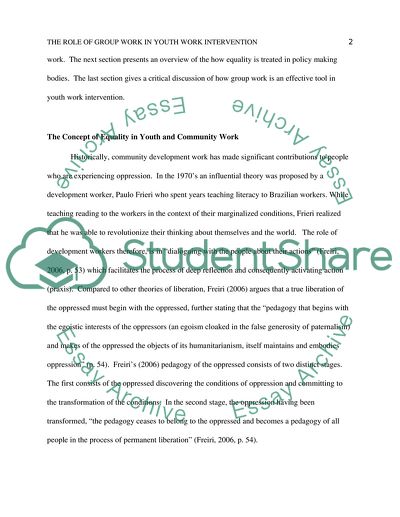Cite this document
(The Role of Group Work in Youth Work Intervention Research Paper, n.d.)
The Role of Group Work in Youth Work Intervention Research Paper. Retrieved from https://studentshare.org/social-science/1733964-linking-theory-to-practice-evaluate-the-role-of-group-work-as-a-youth-work-intervention-and-discuss-how-it-can-challenge-oppression
The Role of Group Work in Youth Work Intervention Research Paper. Retrieved from https://studentshare.org/social-science/1733964-linking-theory-to-practice-evaluate-the-role-of-group-work-as-a-youth-work-intervention-and-discuss-how-it-can-challenge-oppression
(The Role of Group Work in Youth Work Intervention Research Paper)
The Role of Group Work in Youth Work Intervention Research Paper. https://studentshare.org/social-science/1733964-linking-theory-to-practice-evaluate-the-role-of-group-work-as-a-youth-work-intervention-and-discuss-how-it-can-challenge-oppression.
The Role of Group Work in Youth Work Intervention Research Paper. https://studentshare.org/social-science/1733964-linking-theory-to-practice-evaluate-the-role-of-group-work-as-a-youth-work-intervention-and-discuss-how-it-can-challenge-oppression.
“The Role of Group Work in Youth Work Intervention Research Paper”, n.d. https://studentshare.org/social-science/1733964-linking-theory-to-practice-evaluate-the-role-of-group-work-as-a-youth-work-intervention-and-discuss-how-it-can-challenge-oppression.


